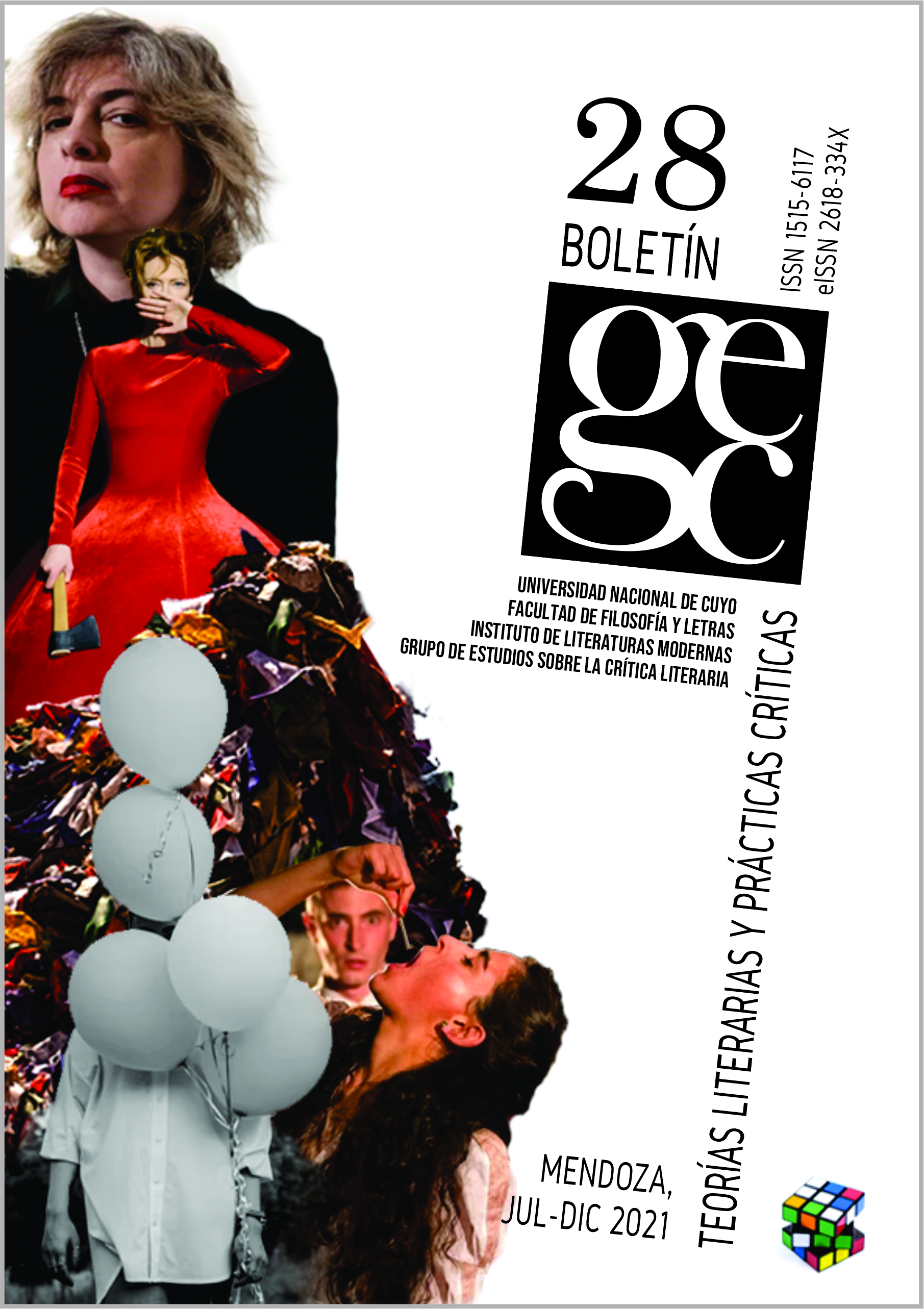Trash: literature, education and political correction
DOI:
https://doi.org/10.48162/rev.43.010Keywords:
Andy Mulligan, Trash, literature for children, moral dilemmasAbstract
Trash, a novel by Andy Mulligan, was banned from the Blue Peter Book Awards in 2010 given that its organizers determined some of its content was violent and inappropriate for the younger readers. The decision poses a constant issue: ¿is there an evil literature that conveys violence into its readers? Banning the novel entails and merges two tendencies (or gestures) in one: protecting childhood by preventing it from exposure to the dark zones of human society: protection by cancelation of reality. The dynamics of these awards let us see that infancy may be subject of consumption before subject of knowledge.
References
Abad, R. (1991). “Squatting and Scavenging in Smokey Mountain”. Philippine Studies, vol. 39, n.1. 263-286.
Bloom, A. (2011). “My book was up for an award. I was elated - until they said it was a ‘judging error’. Blue Peter lost its nerve on a teacher's tale of a Filipino streetboy”. Tes. Disponible en: https://www.tes.com/news/my-book-was-award-i-was-elated-until-they-said-it-was-judging-error
“Blue Peter drops 'violent' book” (2010). Belfast Telegraph, 7 dic. Disponible en: https://www.belfasttelegraph.co.uk/news/uk/blue-peter-drops-violent-book-28575041.html
Bureau of International Labor Affairs (2020). “2020 Findings on the Worst Forms of Child Labor”. Disponible en: https://www.dol.gov/agencies/ilab/resources/reports/child-labor/philippines
Ernesto, A. (2020). “Happyland y Aroma, ni felices ni aromáticos”. Voz Habanera, 18 ago. Disponible en: https://www.vozhabanera.com/happyland-y-aroma-ni-felices-ni-aromaticos/
Evans, J. y J. Chandler (2006). “To buy or not to buy: Family dynamics and children’s consumption”. Sociological Reasearch Online, vol. 11, n 2. Disponible en: http://www.socresonline.org.uk/11/2/evans.html#hood-williams1990
Gómez, A. S (2019). “Manila invisible”. Agencia EFE, 17 jun. Disponible en: https://www.efe.com/efe/espana/destacada/manila-invisible/10011-4002202
International Labour Organization (2013). “Philippines to give child labour a red card”, 17 oct. Disponible en: http://www.ilo.org/manila/info/public/pr/WCMS_224532/lang--en/index.htm
Jenkins, H. (2006). Convergence Culture: Where Old and New Media Collide. New York and London: New York University Press.
Leon, S. L. (2010). “Educating Manila’s rubbish dump children”. The Guardian, 6 dic. Disponible en: http://www.theguardian.com/world/2010/dec/06/manila-rubbish-dump-children-school
Médicos Sin Fronteras. (2017). “Filipinas: Apoyando a las jóvenes en los barrios marginales de Manila”, 6 dic. Disponible en: https://www.msf.org.ar/actualidad/filipinas-apoyando-jovenes-barrios-marginales-manila
Page, B. (2010). “Blue Peter awards drop 'unsuitable' finalist”. The Guardian, 6 dic. Disponible en: http://www.theguardian.com/books/2010/dec/07/blue-peter-awards-drop-finalist-unsuitable
Pauli, M. (2010). “Andy Mulligan talks trash”. The Guardian, 20 dic. Disponible en: http://www.theguardian.com/books/2010/dec/20/andy-mulligan-trash-blue-peter
Schor, Juliet B. (2004). Born to Buy. The Commercialized Child and the New Consumer Culture. New York, London, Toronto, Sidney: Sribner.
Villalobos, J. P. (2000). “Border Real, Border Metaphor: Altering Boundaries in Miguel Méndez and Alejandro Morales”. Arizona Journal of Hispanic Cultural Studies, n. 4, 131-140. Disponible en: https://dialnet.unirioja.es/servlet/articulo?codigo=2577654
Zipes, J. (2000). The Oxford companion to fairy tales. Oxford, New York: Oxford University Press.
Downloads
Published
How to Cite
Issue
Section
License
Copyright (c) 2021 Gustavo Bernal Díaz

This work is licensed under a Creative Commons Attribution-NonCommercial-NoDerivatives 4.0 International License.
Aquellos autores/as que tengan publicaciones en esta revista, aceptan los términos siguientes:
- Los autores/as conservarán sus derechos de autor y garantizarán a la revista el derecho de primera publicación de su obra, el cual estará simultáneamente sujeto a la Licencia de reconocimiento de Creative Commons que permite a terceros compartir la obra siempre que no se use para fines comerciales, siempre que se indique su autor y su primera publicación en esta revista, y siempre que se mencionen la existencia y las especificaciones de esta licencia de uso.
- Los autores/as podrán adoptar otros acuerdos de licencia no exclusiva de distribución de la versión de la obra publicada (p. ej.: depositarla en un archivo telemático institucional o publicarla en un volumen monográfico) siempre que se indique la publicación inicial en esta revista y se cumplan las otras condiciones mencionadas arriba.
- Se permite y recomienda a los autores/as difundir su obra a través de Internet (p. ej.: en archivos telemáticos institucionales o en su página web) antes y durante el proceso de envío, lo cual puede producir intercambios interesantes y aumentar las citas de la obra publicada. (Véase El efecto del acceso abierto).








